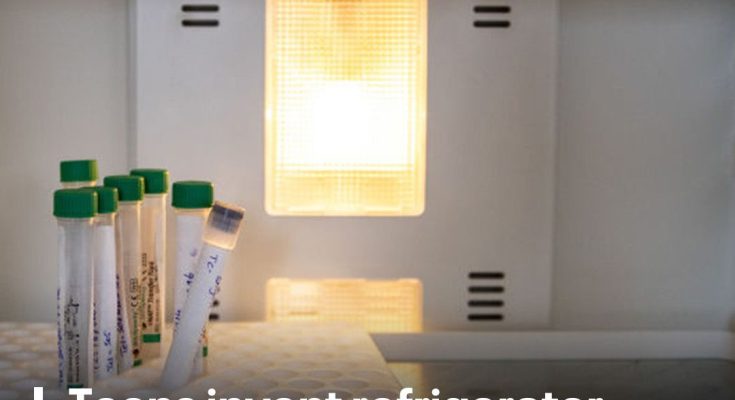FILE – Test samples sit inside of a fridge. (Photo by Ozge Elif Kizil/Anadolu Agency via Getty Images)
Three teens from India have created a salt-powered refrigerator and their goal is to help medical facilities in rural areas that don’t have access to electricity.
Dhruv Chaudhary, Mithran Ladhania and Mridul Jain are all students at the Shishukunj International School Indore.
Their recent invention, called the Thermavault, was submitted to The Earth Prize which inspires students to solve environmental sustainability problems across the world.
What is the Thermavault?
Dig deeper:
The Thermavault uses “ionocaloric cooling based on the dissolution enthalpy of ammonium chloride in water to fuel its cooling process,” according to the official website.
This type of system will allow whatever is inside the Thermavault to remain cold without the use of electricity, which is a crucial workaround for rural areas.
What they’re saying:
“The COVID-19 pandemic served as a reminder of the lack of electricity availability in rural areas; we’ve seen, firsthand, the problems with transporting vaccines, food and essential supplies to these locations. Thus, we redesigned our science-fair cooling system into our solution,” the group shared on The Earth Prize website.
More Thermavaults coming
What’s next:
While Chaudhary, Ladhania and Jain did not win the global Earth Prize, they did win the regional competition.
Their inventions won them $12,500 from The Earth Prize and the group plan to use the money to build more Thermavaults, according to Business Insider.
Chaudhary, Ladhania and Jain plan to build 200 more Thermavaults and send them to 120 hospitals for testing.
“We have been able to keep the vaccines inside the Thermavault for almost 10 to 12 hours,” Dr. Pritesh Vyas, an orthopedic surgeon who tested the device at V One hospital in Indore, said in a video on the Thermavault website.



